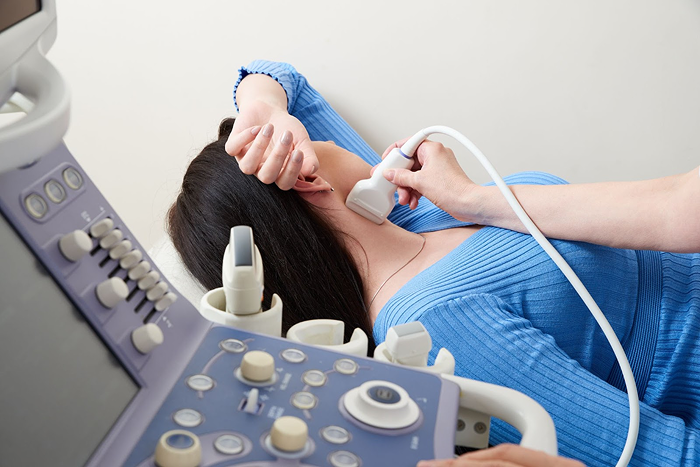Edit Content
Consider This if You’re Experiencing Stomach Pain When Coughing
Experiencing abdominal pain when coughing or sneezing excessively is not uncommon and may be indicative of strained stomach muscles. The intense force generated during persistent coughing, even from a short-term illness like the common cold, can lead to muscle overuse, causing discomfort and soreness in the abdomen, particularly during activities such as coughing, sneezing, or laughing.
Various health conditions can contribute to abdominal pain, and when combined with coughing, the discomfort can intensify. Identifying the root cause is crucial, as certain conditions exhibit specific symptoms alongside abdominal pain. Recognizing these additional signs can help narrow down potential causes.
Can Severe Coughing Cause Abdominal Pain?
Coughing is a forceful action that may induce abdominal pain, especially with frequent or forceful coughs that strain the stomach muscles. If persistent abdominal pain occurs during coughing, it’s essential to consider an underlying condition that coughing may be exacerbating. Similar actions like sneezing or laughing might also trigger abdominal pain. However, if the pain is severe or localized, further investigation is warranted.
Get in touch with us!
Identifying the Location of Pain
When assessing stomach pain, consider the location of discomfort, categorizing it into left side, right side, lower abdomen, or upper abdomen. This information can provide valuable insights, helping healthcare professionals determine potential causes.
Stomach Pain When Coughing Might Be Due to Any of These Conditions
Several health conditions may contribute to stomach pain when coughing. While this isn’t an exhaustive list, consider the following:
1. Gallstones
- Symptoms include abdominal bloating, severe pain lasting at least 30 minutes, fever, right shoulder or upper back pain, jaundice, nausea, or vomiting.
- Treatment may involve medication or surgical removal.
- Learn more about how we screen for gallstones here.
2. Diverticular Disease
- Symptoms include bloating, abdominal pain, fever, chills, nausea, or vomiting.
- Treatment may involve medications, probiotics, or a high-fiber diet.
3. Kidney Stones
- Symptoms include severe back pain, bloody or foul-smelling urine, nausea, vomiting, and fever.
- Treatment varies, ranging from increased water intake to surgery.
4. Pancreatitis
- Symptoms include abdominal and lower back pain, loose or foul-smelling stools, abdominal swelling, and unintentional weight loss.
- Severe cases require emergency medical treatment.
5. Hernia
- Pain exacerbates during coughing, running, sneezing, bowel movements, or heavy lifting.
6. Appendicitis
- Symptoms include abdominal swelling, nausea, vomiting, fever, decreased appetite, diarrhea, or constipation.
- Seek immediate medical attention if you suspect appendicitis.
7. Ovarian Cysts
- Symptoms include lower abdominal pain, bloating, or swelling.
- Treatment depends on the size and nature of the cyst.
8. Cystitis
- Symptoms include cloudy or foul-smelling urine, frequent urination, blood in urine, and general malaise.
- Mild cases may resolve within three days, while worsening symptoms may require antibiotics.
9. Endometriosis
- Causes significant pain in the pelvis, lower back, and lower abdomen, worsening during specific activities.
- Treatment options include hormone therapy, pain medications, or surgery.
If You’re Dealing with Stomach Pains When Coughing Without Knowing the Cause - Consider an Abdominal Ultrasound
When grappling with stomach pain triggered by coughing, an abdominal ultrasound proves to be a valuable diagnostic tool. This non-invasive imaging procedure allows healthcare professionals to obtain detailed images of the abdominal organs, helping identify potential sources of discomfort.

An abdominal ultrasound can reveal abnormalities in organs such as the gallbladder, kidneys, pancreas, and reproductive organs, shedding light on conditions like gallstones, kidney stones, pancreatitis, or ovarian cysts. Its precision and ability to visualize internal structures make it a crucial step in unraveling the underlying causes of abdominal pain associated with coughing. By opting for an abdominal ultrasound, individuals gain a clearer understanding of their abdominal health, enabling healthcare providers to tailor a more targeted and effective treatment plan based on the specific findings.
Can an Ultrasound Detect Digestive Issues?
Ultrasound imaging is generally not the primary diagnostic tool for detecting digestive issues, as it primarily provides detailed images of structures like organs and blood vessels. However, abdominal ultrasound can indirectly contribute to the evaluation of certain digestive issues by visualizing organs within the abdominal cavity.
It’s important to note that for many digestive issues, additional diagnostic methods such as endoscopy, CT scans, MRI, or specific laboratory tests are often more conclusive. Ultrasound is a non-invasive and radiation-free imaging method, but its effectiveness depends on the specific condition being investigated. Healthcare professionals will determine the most appropriate diagnostic approach based on the individual’s symptoms and medical history.
Seeking Medical Attention at Fairbanks Ultrasound
If you experience intense pain and cramping, consider visiting the emergency room as soon as possible. However, if the pain is not extremely severe and can wait, consult your doctor to obtain a prescription for an abdominal ultrasound at Fairbanks Ultrasound for a targeted diagnostic approach.
While most instances of stomach pain during coughing may not be alarming, persistent or severe pain accompanied by other concerning symptoms requires professional evaluation and care. Our doors are open to all patients in Fairbanks, Alaska and surrounding areas who are looking for a bit more clarity into their situation. Fill out the contact form above and our representatives will reach out to you to schedule an appointment.

Same-Day Walk-Ins Available
At Fairbanks Ultrasound, we proudly welcome same-day walk-ins with a valid referral or imaging order from your provider. This flexibility allows us to accommodate time-sensitive exams and patients who need faster access than traditional hospital scheduling often permits. Whether you’re facing an urgent need or simply prefer quicker service, our team is here to provide prompt, high-quality imaging when you need it most.
Do you need help right away?
No problem! Call Us Now.
Fairbanks Ultrasound is a local center in Fairbanks, Alaska that offers various ultrasound services for pregnancy, gynecology, thyroid, vascular, and general purposes.

